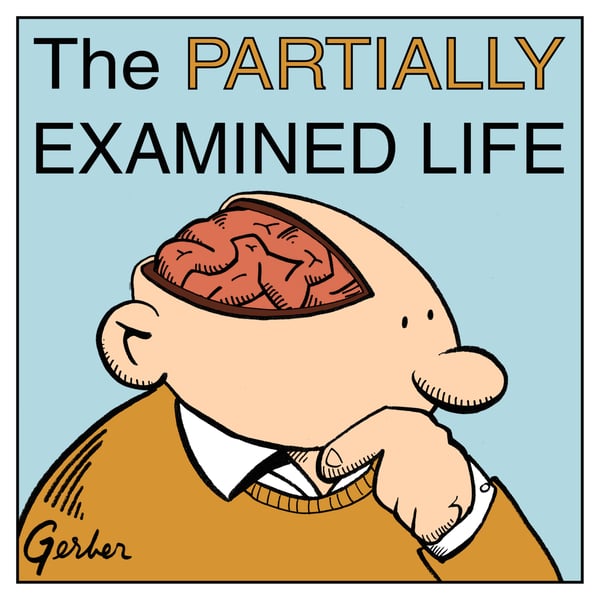Ep. 352: Thomas Reid on Smelling and Knowledge (Part Two)
The Partially Examined Life Philosophy Podcast
Mark Linsenmayer
4.6 • 2.3K Ratings
🗓️ 14 October 2024
⏱️ 49 minutes
🧾️ Download transcript
Summary
Continuing on Inquiry into the Human Mind, getting further into the chapter on smelling as well as the conclusion and Reid's exchange with Hume.
What exactly is our relation with objects in the world according to Reid?
Get more at partiallyexaminedlife.com. Visit partiallyexaminedlife.com/support to get ad-free episodes and bonus content.
Transcript
Click on a timestamp to play from that location
| 0:15.6 | We're listening to partially examined life episode 352 part two. We've been discussing Thomas Reed's inquiry into the human mind on the principles of common sense and we have been talking about smelling and his espeological theory to come after that. |
| 0:24.1 | The question that I had closed our first half with was, to what extent is the idea |
| 0:29.9 | if Reed is saying we don't, all we're directly, all that we actually have is our |
| 0:35.9 | impressions and then thinking, but yet he wants to say we have not necessarily |
| 0:40.7 | inerrant but very reliable access to the things in themselves to real physical objects, right? |
| 0:47.5 | Because these impressions we cannot help but take as the effects of the causes that are these real things. |
| 0:54.8 | And he also says elsewhere that these real things are thinkable, that this was |
| 0:59.6 | Berkeley, even though he was trying to be such a good impurestist all we can know is our own |
| 1:05.8 | ideas which means we can never get out of the circle of ideas and since ideas do not resemble |
| 1:10.2 | physical objects we can never know physical, but he did want to allow |
| 1:13.2 | minds that have the ideas, even though the minds are not themselves ideas. He said, |
| 1:18.3 | and I hadn't remembered this feature of Berkeley, but I'll take Reed's word for it, |
| 1:23.2 | that Berkeley was willing to say, |
| 1:24.4 | well, we can think about those things |
| 1:26.7 | even though we can't actually perceive them. |
| 1:30.4 | And so of course, Reed asks, |
| 1:31.6 | well, why can't we just think about physical external objects even that we can't directly perceive them? |
| 1:36.0 | And so maybe that's what we're doing is that we're constructing models and by constructing people often are like, oh, it's arbitrary. |
| 1:43.5 | No, it's not arbitrary. |
| 1:45.0 | You're constructing it based on the evidence that you have and you could be wrong, |
| 1:48.9 | but you know, God is good. |
| 1:51.7 | Our faculties work well. We're well designed so they're typically accurate models insofar as you know you have the data support them. |
... |
Please login to see the full transcript.
Disclaimer: The podcast and artwork embedded on this page are from Mark Linsenmayer, and are the property of its owner and not affiliated with or endorsed by Tapesearch.
Generated transcripts are the property of Mark Linsenmayer and are distributed freely under the Fair Use doctrine. Transcripts generated by Tapesearch are not guaranteed to be accurate.
Copyright © Tapesearch 2025.

